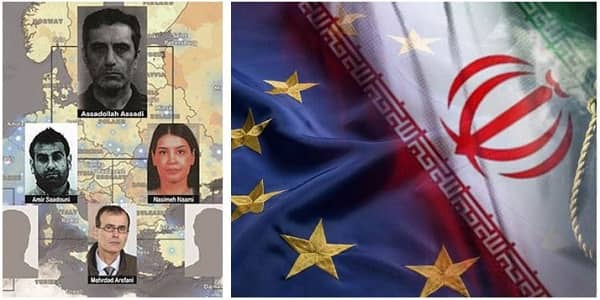The Women’s Committee of the National Council of Resistance of Iran (NCRI) held a virtual conference on International Women’s Day, featuring female Iranian activists and lawmakers from across Europe, with the intention of highlighting the Iranian regime’s opposition to women’s rights.
One speaker, former British MEP Anthea McIntyre, said: “I find it sickening to see European officials pursuing trade relations, appeasing mullahs, and ignoring their human rights abuses, especially against women.”
This was echoed by several others in the conference and had been previously voiced in the many written statements from lawmakers and non-governmental organizations prior to the conference.
Another major topic of discussion was the recent terrorism conviction of Iranian diplomat Assadollah Assadi, who was sentenced to 20 years in prison, while his co-conspirators received 15-18 years each. He’d been attempting to blow up an NCRI rally in Paris in June 2018, where 100,000 were located.
Evidence gathered during the course of this investigation found that Assadi appears to be the head of a terrorist network spanning 11 European countries, which is a threat to the lives of thousands of citizens across the continent.
The International Committee in Search of Justice (ISJ) wrote that this shows why Europe must take a different approach to Iran, citing the Belgian prosecutors as saying that the order for the terrorist attack came straight from the top of the regime.
They wrote: “In this respect, the activities of Iran’s embassies, religious and cultural centers need to be scrutinized, and the diplomatic relations with Iran need to be downgraded.”
The statement said that relations and trade ties must be contingent on Iran dismantling its terrorist networks and vowing to end its terrorism in Europe, as well as improve human rights for all Iranians.
The NCRI wrote: “Such advice is clear and direct. It reflects not only an obligation to Western security interests but also a moral obligation to the Iranian people and their families abroad, who would have borne the brunt of the 2018 attack. This would be bad enough if those actions were limited to provocations directed at Iran’s foreign adversaries. But in fact, those provocations typically go hand-in-hand with stepped-up crackdowns on dissent inside Iran.”
They advised that the 2018 terror plot was the regime’s response to a major uprising inside Iran that the mullahs’ agents suppressed with bullets and handcuffs. But this did not break the people’s spirit. They have been out on the streets ever since, calling for freedom. If the West don’t want to help, they could at least not stand in the way.
